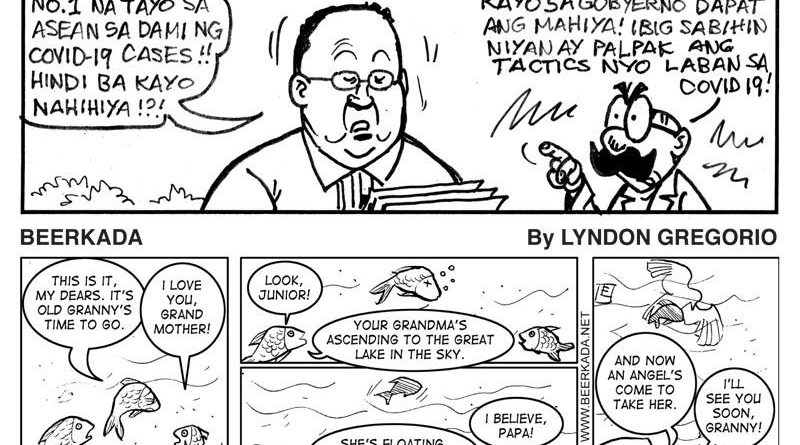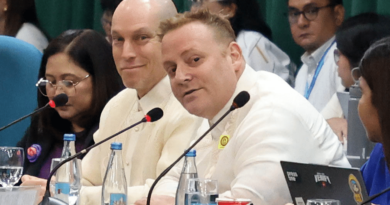SEND IN THE CLOWN – THE JOKER WENT WILD
THE JOKER WENT WILD
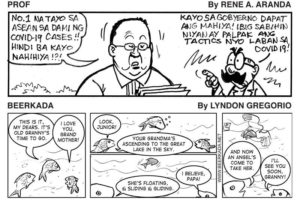
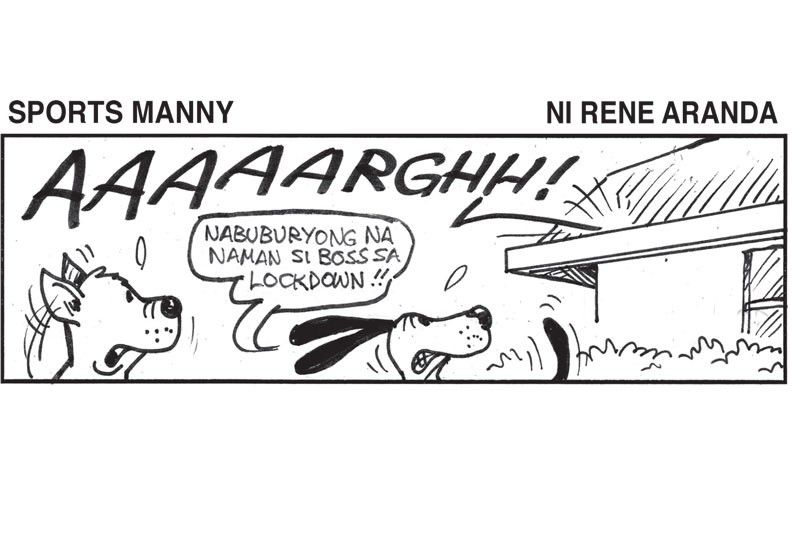
 Ads by: Memento Maxima Digital Marketing
Ads by: Memento Maxima Digital Marketing
@ [email protected]
– SPACE RESERVE FOR YOUR ADVERTISEMENT
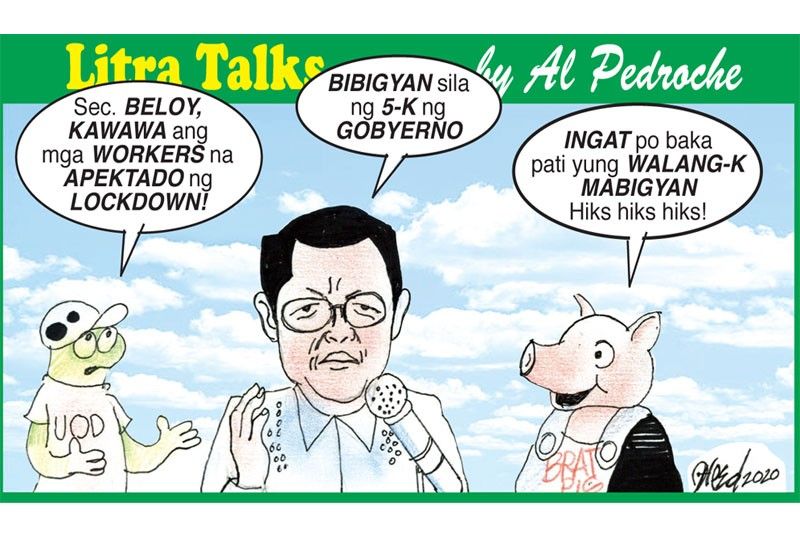
<op-ed>
 Ads by: Memento Maxima Digital Marketing
Ads by: Memento Maxima Digital Marketing
@ [email protected]
– SPACE RESERVE FOR YOUR ADVERTISEMENT
Love Knots
<comics>
Tuldok
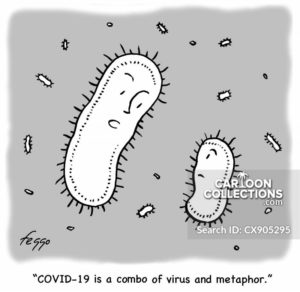
Tackling virus via cartoon

On March 24, Myanmar suddenly started to worry, with the Ministry of Health confirming the nation’s first cases of the deadly coronavirus that causes COVID-19.
The announcement instantly spread across social media, some reacting with fear. Images of panic buying in the city’s major shopping centers, as people rushed to buy food and medicine, appeared on Facebook pages.
Fake news and real news circulated together, sometimes escalating the anxiety. Amid the confusion news sources from around the world began circulating in Myanmar, about the rising number of cases overseas, information about the virus and measures for prevention – sometimes accurately translated, other times not.
Among those sources of information, local cartoonists have been playing their role in helping to educate the public about the risks of COVID-19. Their work is published in newspapers, used in publicity campaigns and circulated on social media.
“When we create cartoons about COVID-19, we have to be more careful about the information we want to convey to the viewer. Even doctors don’t fully understand how this virus works, so we need to most up to date medical information,” said cartoonist Lai Lone.
There is also concern that carriers of the virus may be socially ostracised in Myanmar, so “cartoons need to be cautious of reassuring people of the benefits of seeking medical care.We don’t want to blame the disease on the carriers,” he added.
One of Lai Lone’s cartoons depicts a villager sheltering under and umbrella from Myanmar’s scorching summer sun, while he washes his hands with detergent from a giant soap dispenser. The sun is depicted as a Coronavirus, and looms large over the sky – as it does in Myanmar at the moment.
“Even if we all live under the same sky, and under the threat of the disease in the air, we can still take measures to protect ourselves from getting sick,” he said.
Another image is titled “Please wait before you come inside”, and shows a family sitting on the end of a plank precariously perched over a cliff edge. They all look anxiously towards a visitor, who approaches with a suitcase and travel bag – clearly a visitor from overseas – who may unwittingly tip the family over the edge.
.

With the first two cases of COVID-19 being Myanmar citizens returning from overseas, the cartoon taps into the concern about needing to quarantine such people. It seeks to educate families about the dangers of returning guests, as a measure to protect the whole family.
Cartoonist Thein Tun Oo posted his cartoons directly his Facebook account. “May all the new test results be negative”, are the words that accompany a picture of the world joining hands in prayer.
Thein Tun Oo also donates masks, rice, oil and virus education pamphlets to people living in the Hlaing Thayar and Shwe Pyi Thar townships.
“The cartoons can reach people on Facebook, or those who read the newspaper. They don’t reach the people who don’t have access to a smartphone or the internet, which are those people who cannot afford daily items like food and healthcare. It is important to share medical knowledge with those people,” he said.
“Now, only the rich suffer form that diseases and it hasn’t seemed to have spread to the poor yet. If they are affected, it will be hard for us to control. So, I will share the medial knowledge to them as much as I can,” he added.
Cartoonist Za Wa Na Thar created a cartoon which depicts a schoolgirl and an infant washing their hands. Around a demonic-looking Coronavirus are small images of hands – one gripping a bus handle, another a door knob, one pressing an elevator button and another of two people shaking hands.
The caption reads “Wash your hands whenever you touch something in public, be aware of the situation and be careful”, referring to the possible modes of transmission for the virus – i.e. public surfaces our hands come into contact with.
“I created this cartoon from online references with the hope of educating others. Cartoons are more memorable than normal news stories,” Za Wa Na Thar said.
“The Myanmar Cartoonist Association posts the cartoons from a range of different cartoonists on its Facebook page, including mine. I also share them on my Facebook page, so these educational cartoons have a good reach on social media. They also try to portray things in a humorous way, or whichever way is effective in getting the message out,” he added.
Since the lifetime of the great cartoonist U Ba Gyan, cartooning has been the easiest and most effective way to reach people across the country. – Translated / 01 APR 2020
.
<comics>

